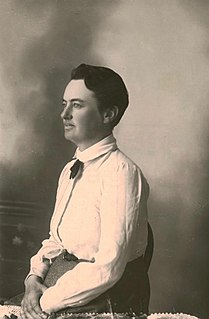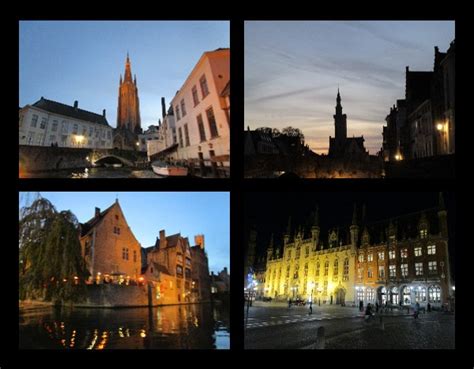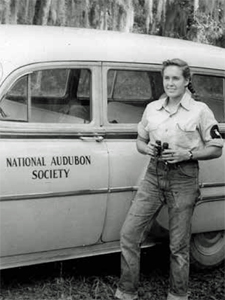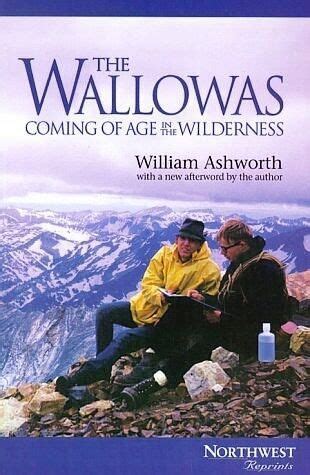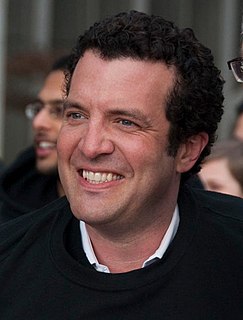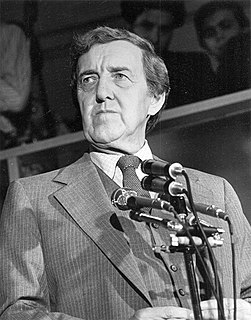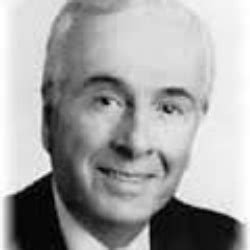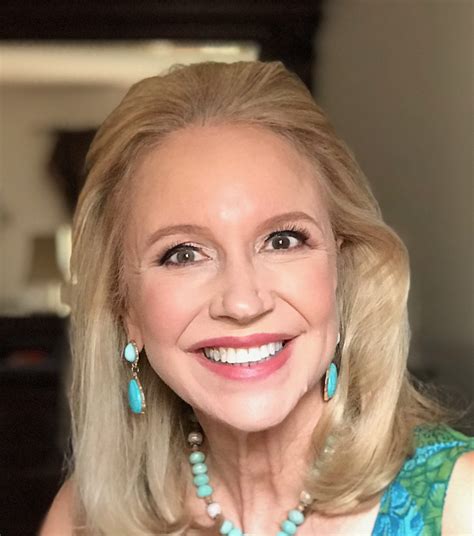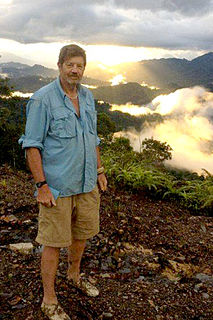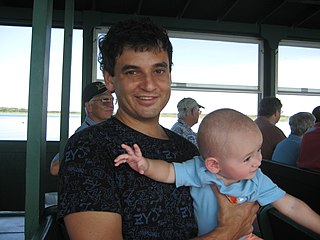Top 242 Lakes Quotes & Sayings - Page 4
Explore popular Lakes quotes.
Last updated on April 16, 2025.
I shall speak only of the part I have stayed in- the districts of Lakes Ochrida and Presba. Here there are Greeks, Slavs, Albanians, and Vlahs. Of Turks, except officials and such of the army as may be quartered on the spot, there are few. The Albanians, I believe, are all Moslem. Should there be any Christians they would be officially classed as Greeks. A large part of the land near Lake Presba is owned by Moslem Albanians as ' chiftliks '(farms).
Indeed, if I understand this global-warming business correctly, the danger is that the waters will rise and drown the whole of Massachusetts, New York City, Long Island, the California coast and a few big cities on the Great Lakes - in other words, every Democratic enclave will be wiped out leaving only the solid Republican heartland. Politically speaking, for conservatives there's no downside to global warming.
Men need to know the elemental challenges that sea and mountains present. They need to know what it is to be alive and to survive when great storms come. They need to unlock the secrets of streams, lakes, and canyons and to find how these treasures are veritable storehouses of inspiration. They must experience the sense of mastery of adversity. They must find a peak or a ridge that they can reach under their own power alone.
The lakes are something which you are unprepared for; they lie up so high, exposed to the light, and the forest is diminished to a fine fringe on their edges, with here and there a blue mountain, like amethyst jewels set around some jewel of the first water, - so anterior, so superior, to all the changes that are to take place on their shores, even now civil and refined, and fair as they can ever be.
Camping has become one of my most beloved pastimes. I take a fierce delight in swinging a pak o my back or into a canoe and heading for the hills or lakes. In my opinion, camping can be the greatest expression of free will, personal independence, innate ability, and resourcefulness possible today in our industrialized, urbanized existence. Regardless of how miserable or how splendid the circumstances, the sheer experience of camping seems a total justification for doing it.
It cannot but affect our philosophy favorably to be reminded of these shoals of migratory fishes, of salmon, shad, alewives, marsh-bankers, and others, which penetrate up the innumerable rivers of our coast in the spring, even to the interior lakes, their scales gleaming in the sun; and again, of the fry which in still greater numbers wend their way downward to the sea.
Set the basketball on the kitchen table. Open a cupboard, get out a bottle of sesame seeds, and place a single seed beside the basketball. If you were to reduce the Earth to the size of a basketball, all the fresh surface water on the planet - all those rivers and lakes and ponds and streams - would fit inside that one tiny sesame seed. Add a second sesame seed; now you have all the usable underground water as well. Is fresh water a scarce resource?
When I think about what makes Canada great, fresh water is right at the top of the list. We have over two million lakes in this country and more than enough people who are willing to mess with them. My Canada includes weird scientists who are devoted to keeping our water clean. When we stand up and we sing O Canada, we pledge to stand on guard for thee. If that doesn't include our water, we might as well sit down and give up.
The future of America may or may not bring forth a black President, a woman President, a Jewish President, but it most certainly always will have a suburban President. A President whose senses have been defined by the suburbs, where lakes and public baths mutate into back yards and freeways, where walking means driving, where talking means telephoning, where watching means TV, and where living means real, imitation life.
Can we afford clean water? Can we afford rivers and lakes and streams and oceans which continue to make possible life on this planet? Can we afford life itself? Those questions were never asked as we destroyed the waters of our nation, and they deserve no answers as we finally move to restore and renew them. These questions answer themselves.
Eleanor hadn't written him a letter. It was a postcard. GREETINGS FROM THE LAND OF 10,000 LAKES it said on the front. Park turned it over and recognized her scratchy handwriting. It filled his head with song lyrics. He sat up. He smiled. Something heavy and winged took off from his chest. Eleanor hadn't written him a letter, it was a postcard. Just three words long.
I look at it this way... For centuries now, man has done everything he can to destroy, defile, and interfere with nature: clear-cutting forests, strip-mining mountains, poisoning the atmosphere, over-fishing the oceans, polluting the rivers and lakes, destroying wetlands and aquifers... so when nature strikes back, and smacks him on the head and kicks him in the nuts, I enjoy that. I have absolutely no sympathy for human beings whatsoever. None. And no matter what kind of problem humans are facing, whether it's natural or man-made, I always hope it gets worse.
All indications are that three and a half billion years ago, Mars looked like Earth. It had lakes. It had rivers. It had river deltas. It had snow-capped peaks and puffy clouds and blue sky. Three and a half billion years ago, it was a happening place. The same time on Earth, that's when life started. So did life start on Mars?
To-day Massachusetts; and the whole of the American republic, from the border of Maine to the Pacific slopes, and from the Lakes to the Gulf, stand upon the immutable and everlasting principles of equal and exact justice. The days of unrequited labor are numbered with the past. Fugitive slave laws are only remembered as relics of that barbarism which John Wesley pronounced "the sum of all villainies," and whose knowledge of its blighting effects was matured by his travels in Georgia and the Carolinas.
As a writer you're holding a dog. You let the dog run about. But you finally can pull him back. Finally, I'm in control. But the great excitement is to see what happens if you let the whole thing go. And the dog or the character really runs about, bites everyone in sight, jumps up trees, falls into lakes, gets wet, and you let that happen. That's the excitement of writing plays-to allow the thing to be free but still hold the final leash.
As we lay huddled together under the tent, which leaked considerably about the sides, with our baggage at our feet, we listened to some of the grandest thunder which I ever heard, -rapid peals, round and plump, bang, bang, bang in succession, like artillery from some fortress in the sky; and the lightning was proportionally brilliant. The Indian said, 'It must be good powder.' All for the benefit of the moose and us, echoing far over the concealed lakes.
These bright roofs, these steep towers, these jewel-lakes, these skeins of railroad line - all spoke to her and she answered. She was glad they were there. She belonged to them and they to her. . . . She had not lost it. She was touching it with her fingertips. This was flying: to go swiftly over the earth you loved, touching it lightly with your fingertips, holding the railroads lines in your hand to guide you, like a skein of wool in a spider-web game - like following Ariadne's thread through the Minotaur's maze, Where would it lead, where?
What a glorious new Scandinavia might not Minnesota become! Here the Swede would find again his clear, romantic lakes, the plains of Scane rich in corn, and the valleys of Norrland; here the Norwegian would find his rapid rivers ... The climate, the situation, the character of the scenery agrees with our people better than that of any other American States.
Lightning my pilot sits; In a cavern under is fettered the thunder, It struggles and howls at fits; Over earth and ocean, with gentle motion, This pilot is guiding me, Lured by the love of the genii that move In the depths of the purple sea; Over the rills, and the crags, and the hills, Over the lakes and the plains, Wherever he dream, under mountain or stream The Spirit he loves remains; And I all the while bask in heaven's blue smile, Whilst he is dissolving in rains.
I had a lot of great lakes of ignorance that I was up against, I would write what I knew in almost like islands that were rising up out of the oceans. Then I would take time off and read, sometimes for months, then I would write more of what I knew, and saw what I could see, as much as the story as I could see. And then at a certain point I had to write out what I thought was the plot because it was so hard to keep it all together in my head. And then I started to write in a more linear way.
Imagine if Congress always put the interests of polluters ahead of the health of our families. Our rivers and lakes would be choked with sewage. Acid rain would pour down from smog-filled skies. Hundreds of thousands more of our neighbors, friends, and loved ones would be victims of cancer, heart disease, and asthma.
I think the main thing is: Just do it. Plunge in! Being Canadian, I go swimming in icy cold lakes, and there is always that dithering moment. "Am I really going to do this? Won't it hurt?" And at some point you just have to flop in there and scream. Once you're in, keep going. You may have to crumple and toss, but we all do that. Courage! I think that is what's most required.
Just as plagues were visited on Pharaoh so will pestilences and disasters be visited on the white man. Why, it has already started: God has begun to send them heat when they expect cold; he sends them cold when they expect heat. Their crops are dying, their children are being born with all kinds of deformities, the rivers and lakes are coming out of the belly of the earth to wash them away.
Two voices are there: one is of the deep; It learns the storm-cloud's thunderous melody, Now roars, now murmurs with the changing sea, Now bird-like pipes, now closes soft in sleep: And one is of an old half-witted sheep Which bleats articulate monotony, And indicates that two and one are three, That grass is green, lakes damp, and mountains steep And, Wordsworth, both are thine.
The King beneath the mountains, The King of carven stone, The lord of silver fountains Shall come into his own! His crown shall be upholden, His harp shall be restrung, His halls shall echo golden To songs of yore re-sung. The woods shall wave on mountains. And grass beneath the sun; His wealth shall flow in fountains And the rivers golden run. The streams shall run in gladness, The lakes shall shine and burn, And sorrow fail and sadness At the Mountain-king’s return!
Scots are born exiles, and Scotland the perfect country to be exiled from. Do not imagine that I am running down Scotland. Far from it. ... No, what I mean is that Scotland's beauties, though undeniable, are obvious ones, easy to carry in the heart, easy even to describe to the benighted members of less fortunate races. Lakes, islands and mountains, heather and rowan, broad straths and narrow glens - these are jewels easily worn in the memory.
If we use our fuel to get our power, we are living on our capital and exhausting it rapidly. This method is barbarous and wantonly wasteful, and will have to be stopped in the interest of coming generations. The heat of the sun's rays represents an immense amount of energy vastly in excess of waterpower...The sun's energy controlled to create lakes and rivers for motive purposes and transformation of arid deserts into fertile land.
A scientist with a poet's command of language, Cristina Eisenberg writes with precision and passion . . . takes her reader on a breathtaking, sometimes heartbreaking tour of the planet from the Gulf of Maine to the Amazonian rain forests, the tropical coral reefs to old growth forests of the Northwest as well as rivers, lakes, and wetlands. I found the wealth of information not only accessible but riveting . . . Eisenberg's powerful, beautifully written book . . . has the potential to open many people's eyes, minds, and hearts.
Hell came right along with God, hand in hand. The stink of sulfur swirled in the air of the church, fire burned in the aisles, and brimstone rained out of the rafters. From the evangelist's oven mouth spewed images of a place with pitchforks, and devils, and lakes of fire that burned forever. God had fixed a place like that because he loved us so much.
Inanimate objects are sometimes parties to litigation. A ship has a legal personality, a fiction found useful for maritime purposes. The corporation sole - a creature of ecclesiastical law - is an acceptable adversary, and large fortunes ride on its cases... So it should be as respects valleys, alpine meadows, rivers, lakes, estuaries, beaches, ridges, groves of trees, swampland, or even air that feels the destructive pressures of modern technology and modern life.
Her mighty lakes, like oceans of liquid silver; her mountains with their right aerial tints; her valleys, teeming with wild fertility; her tremendous cataracts, thundering in their solitudes; her boundless plains, waving with spontaneous verdure; her brought deep rivers, rolling in solemn silence to the ocean; her trackless forests, where vegetation puts forth all its magnificence; her skies, kindling waves in the magic of the summer clouds and glorious sunshine;-no, never need an American look beyond his own country for the sublime and beautiful of natural scenery.
A three billion year old planet floating in the vast universe with mountains, seventy percent seas and oceans, fertile lands, immense forests, rivers and lakes, sea shores and deserts, this is where we humans have the privilege to live, the latest, most advanced newcomers in evolution. What an immense, incredible responsibility we have to be a right, positive element in the further evolution of that planet. That is the big question before us in the new century and millennium.
Listen to the air.
You can hear it, feel it,
smell it, taste it.
Woniya wakan, the holy air,
which renews all by its breath.
Woniya wakan, spirit, life, breath, renewal,
it means all that.
We sit together, don’t touch,
but something is there,
we feel it between us
as a presence.
A good way to start thinking
about nature
is to talk to it,
talk to the rivers, to the lakes,
to the winds,
as to our relatives.
Yet this perhaps is what love does, or the memory of it; it sucks the life from the living, glorying body and leaves it, when love has gone, a shred, a simulacrum - dross, to be swept up from the factory floor, pitiful and dusty, useless... Do all men and women feel love before they die? This force, this source of light, that lies before the sun; glances off mountains and lakes, blinding and dazzling, on a Sunday afternoon; so brilliant you have to guard your soul, fold your arms to shield your heart from the very memory of it.
Whether we live by the seaside, or by the lakes and rivers, or on the prarie, it concerns us to attend to the nature of fishes, since they are not phenomena confined to certain localities only, but forms and phases of the life in nature universally dispersed. The countless shoals which annually coast the shores of Europe and America are not so interesting to the student of nature as the more fertile law itselffrom which it results that they may be found in water in so many places, in greater or lesser numbers.
It is convenient for the old men to blame Eve. To insist we are damned because a country girl talked to the snake one afternoon long ago. Children must starve in Somalia for that, and old women be abandoned in our greatest cities. It’s why we will finally be thrown into the lakes of molten lead. Because she was confused by happiness that first time anyone said she was beautiful. Nevertheless, she must be the issue, so people won’t notice that rocks and galaxies, mathematics and rust are also created in His image.
Eating alone is a disappointment. But not eating matter more, is hollow and green, has thorns like a chain of fish hooks, trailing from the heart, clawing at your insides. Hunger feels like pincers, like the bite of crabs; it burns, burns, and has no fur. Let us sit down soon to eat with all those who haven't eaten; let us spread great tablecloths, put salt in lakes of the world, set up planetary bakeries, tables with strawberries in snow, and a plate like the moon itself from which we can all eat. For now I ask no more than the justice of eating.
I remember a hundred lovely lakes, and recall the fragrant breath of pine and fir and cedar and poplar trees. The trail has strung upon it, as upon a thread of silk, opalescent dawns and saffron sunsets. It has given me blessed release from care and worry and the troubled thinking of our modern day. It has been a return to the primitive and the peaceful. Whenever the pressure of our complex city life thins my blood and benumbs my brain, I seek relief in the trail; and when I hear the coyote wailing to the yellow dawn, my cares fall from me - I am happy.
The usual way of growing cotton is highly petrochemical-intensive, requiring 110 pounds of nitrogen fertilizer per acre. Some of the fertilizer is broken down by soil bacteria into nitrate, a toxic and highly soluble chemical that can leach into groundwater or get washed into lakes, creating oxygenless dead zones.
In a painting no one complains that the subject is posed, but everybody complains about what looks posed in a photograph. Except, I've found that if I go very close in to the face, then the posed expression no longer exists. The face becomes a landscape of the lakes of the eyes and the hills of the nose and the valley of the cleft of the chin.
When I grew up in the early '90s, the new World Wide Web felt like a gimmick, and I had no idea of the changes in store. In the summers, I'd backpack through Europe, follow the Grateful Dead. I had a car and a tent and traveled around the Great Lakes and out West. Jack Kerouac was my guiding light, his 'On the Road' a sacred text.
The Universe is one great kindergarten for man. Everything that exists has brought with it its own peculiar lesson. The mountain teaches stability and grandeur; the ocean immensity and change. Forests, lakes, and rivers, clouds and winds, stars and flowers, stupendous glaciers and crystal snowflakes, - every form of animate or inanimate existence, leaves its impress upon the soul of man. Even the bee and ant have brought their little lessons of industry and economy.
We all have the same God, we just serve him differently. Rivers, lakes, ponds, streams, oceans all have different names, but they all contain water. So do religions have different names, and they all contain truth, expressed in different ways forms and times. It doesn't matter whether you're a Muslim, a Christian, or a Jew. When you believe in God, you should believe that all people are part of one family. If you love God, you can't love only some of his children.
Impartial observers from other planets would consider ours an utterly bizarre enclave if it were populated by birds, defined as flying animals, that nevertheless rarely or never actually flew. They would also be perplexed if they encountered in our seas, lakes, rivers, and ponds, creatures defined as swimmers that never did any swimming. But they would be even more surprised to encounter a species defined as a thinking animal if, in fact, the creature very rarely indulged in actual thinking.
Oh land of farms and green hills mild Once formed by giants rough and wild With massive paws they gripped and tore With one great rip they formed the shore Where heavy boots left prints so deep Blue lakes remain 'tween summits steep The giants fought beneath our skies And from their bones our mountains rise
We often move away from pain, which is helpful only before being hurt. Once in pain, it seems the only way out is through. Like someone falling off a boat, struggling to stay above the water only makes things worse. We must accept we are there and settle enough so we can be carried by the deep. The willingness to do this is the genesis of faith, the giving over to currents larger than us. Even fallen leaves float in lakes, demonstrating how surrender can hold us up.
I grew up in a theater family. My father was a regional theater classical repertory producer. He created Shakespeare festivals. He produced all of Shakespeare's plays, mostly in Shakespeare festivals in Ohio. One of them, the Great Lakes Theater Festival in Cleveland, is still going. So I grew up not wanting to be an actor, not wanting to go into the family business.
My birthplace was California, but I couldn't forget Armenia, so what is one's country? Is it land of the earth, in a specific place? Rivers there? Lakes? The sky there? The way the moon comes up there? And the sun? Is one's country the trees, the vineyards, the grass, the birds, the rocks, the hills and summer and winter? Is it the animal rhythm of the living there? The huts and houses, the streets of cities, the tables and chairs, and the drinking of tea and talking? Is it the peach ripening in summer heat on the bough? Is it the dead in the earth there?
The thrill of tramping alone and unafraid through a wilderness of lakes, creeks, alpine meadows, and glaciers is not known to many. A civilization can be built around the machine but it is doubtful that a meaningful life can be produced by it.... When man worships at the feet of avalas creations. When he feels the wind blowing through him on a high peak or sleeps under a closely matted white bark pine in an exposed basin, he is apt to find his relationship to the universe.
There was just one moon. That familiar, yellow, solitary moon. The same moon that silently floated over fields of pampas grass, the moon that rose--a gleaming, round saucer--over the calm surface of lakes, that tranquilly beamed down on the rooftops of fast-asleep houses. The same moon that brought the high tide to shore, that softly shone on the fur of animals and enveloped and protected travelers at night. The moon that, as a crescent, shaved slivers from the soul--or, as a new moon, silently bathed the earth in its own loneliness. THAT moon.
While the very inhabitants of New England were thus fabling about the country a hundred miles inland, which was a terra incognitato them,... Champlain, the first Governor of Canada,... had already gone to war against the Iroquois in their forest forts, and penetrated to the Great Lakes and wintered there, before a Pilgrim had heard of New England.
The proof given by Wright, that non-adaptive differentiation will occur in small populations owing to "drift," or the chance fixation of some new mutation or recombination, is one of the most important results of mathematical analysis applied to the facts of neo-mendelism. It gives accident as well as adaptation a place in evolution, and at one stroke explains many facts which puzzled earlier selectionists, notably the much greater degree of divergence shown by island than mainland forms, by forms in isolated lakes than in continuous river-systems.
Before we go there and set up greenhouses, dance clubs, and falafel stands, let's make sure that, in some subtle form that could be harmed by the human hubbub, life does not already exist there. If not, then by all means build cities, plant forests and fill lakes and streams with trout -- bring life to Mars and Mars to life. We'll then be the Martians we've been dreaming about for all these years.
Man is taking over the forests and polluting the oceans, the animal species are threatened. I try to contribute as much as I can. We're really messing up our environment. I try to get people more aware of what's going on so that they can, even in a local way, try to prevent pollution to their lakes and rivers and prevent nuclear dumping in the oceans - it's bad enough that they're doing it in residential areas, but putting it in the ocean! Eventually it's going to pollute our food resources and, if the ocean dies, we're gone.
